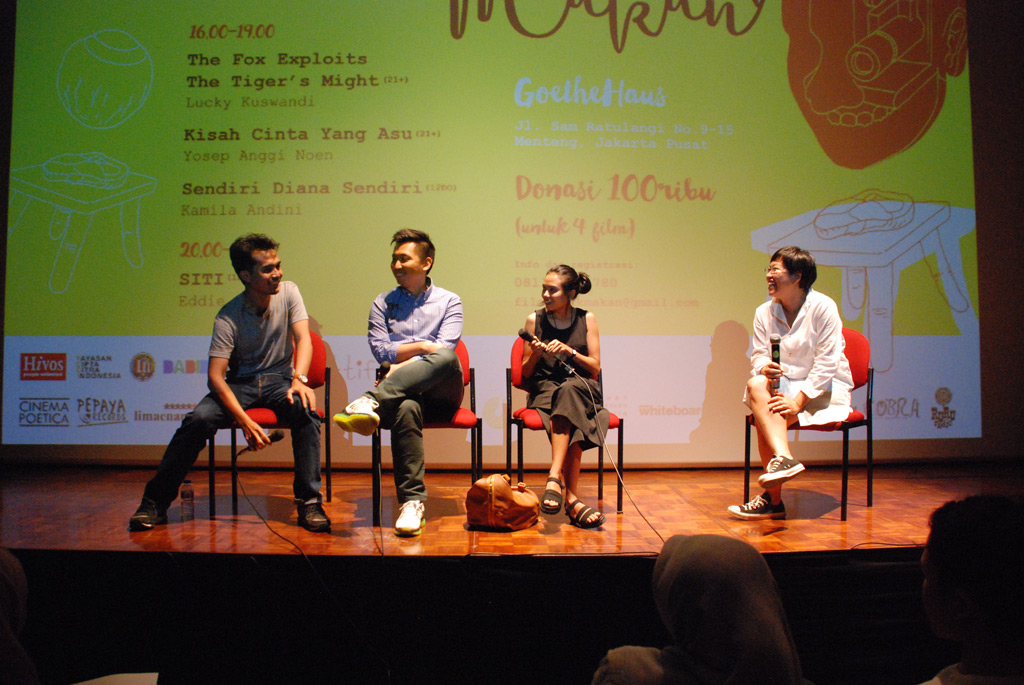
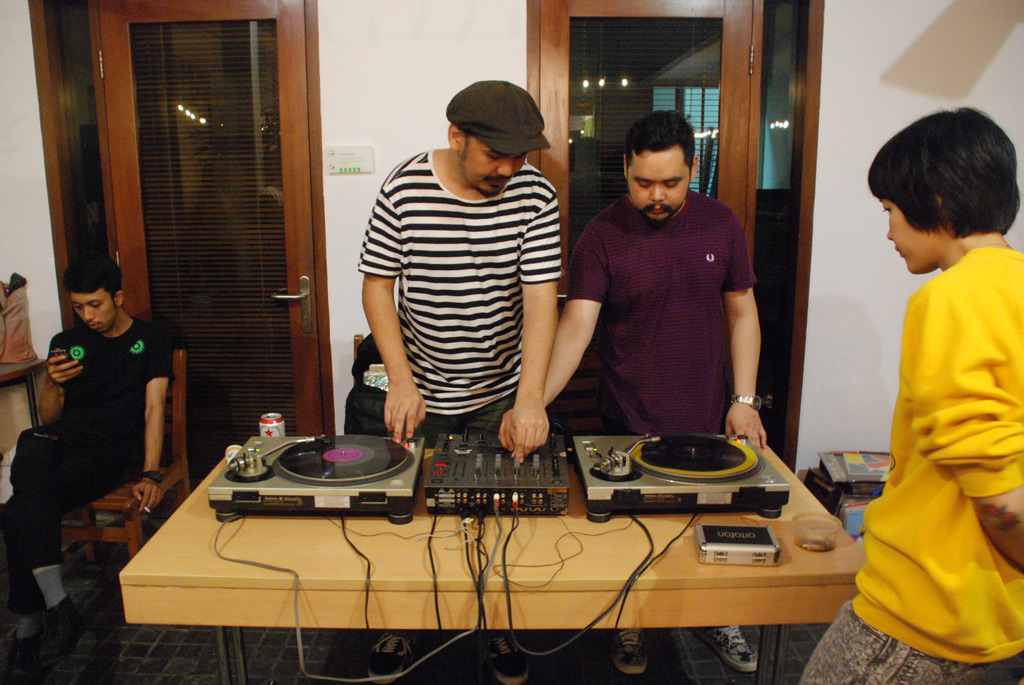
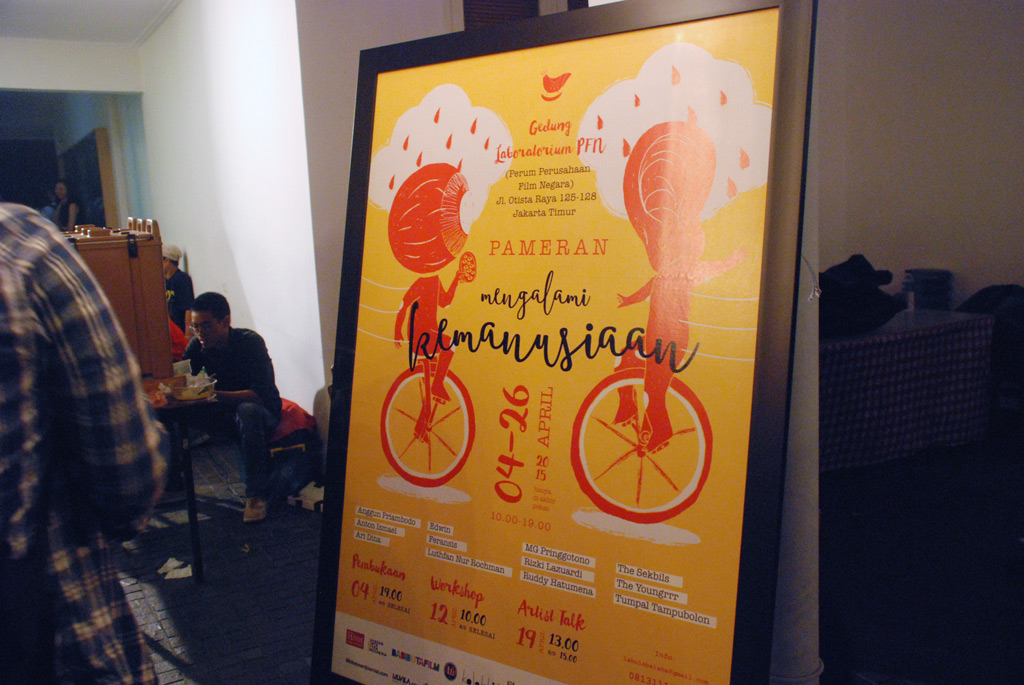
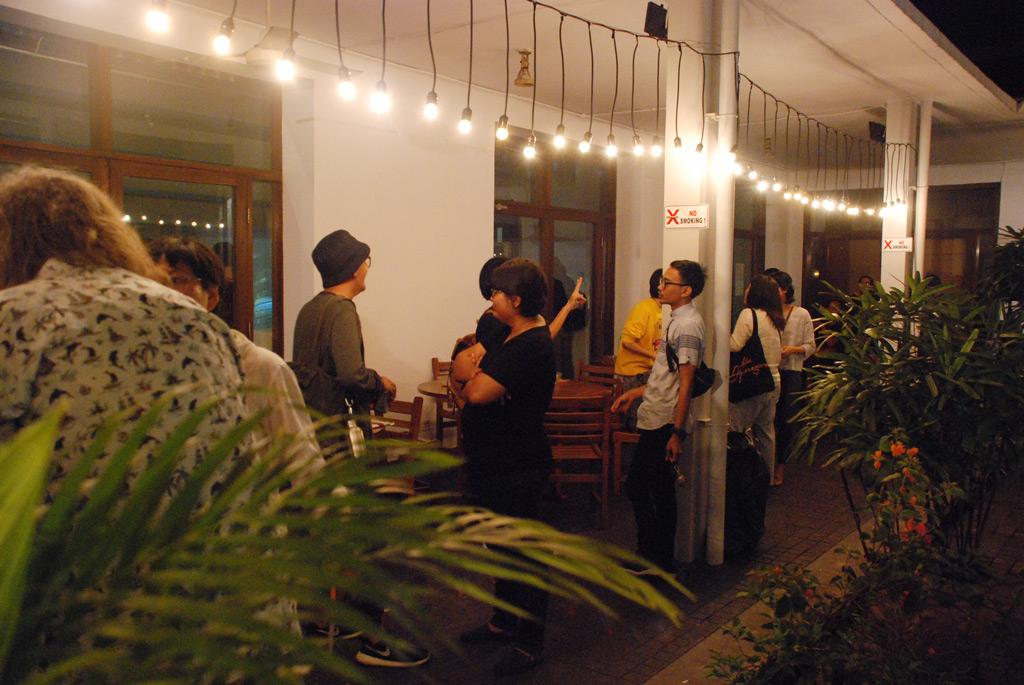
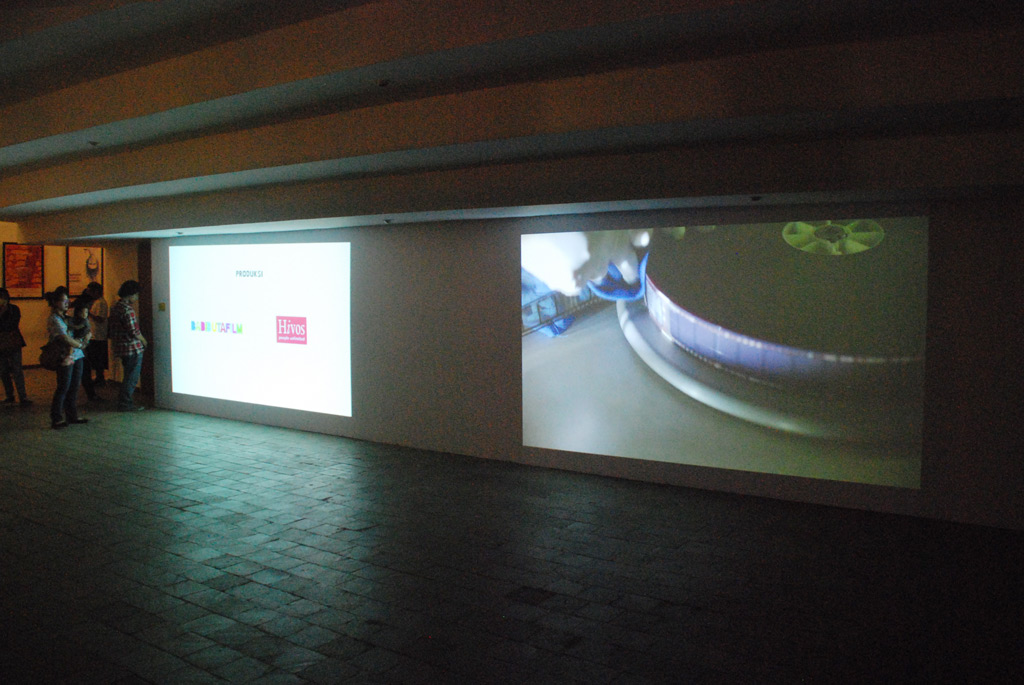
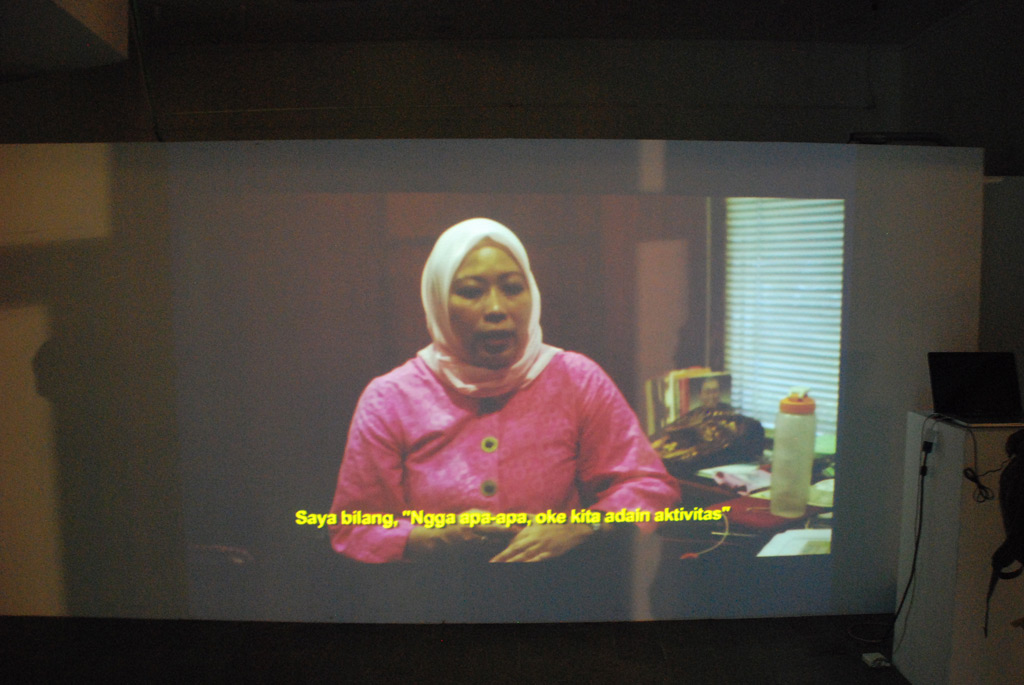
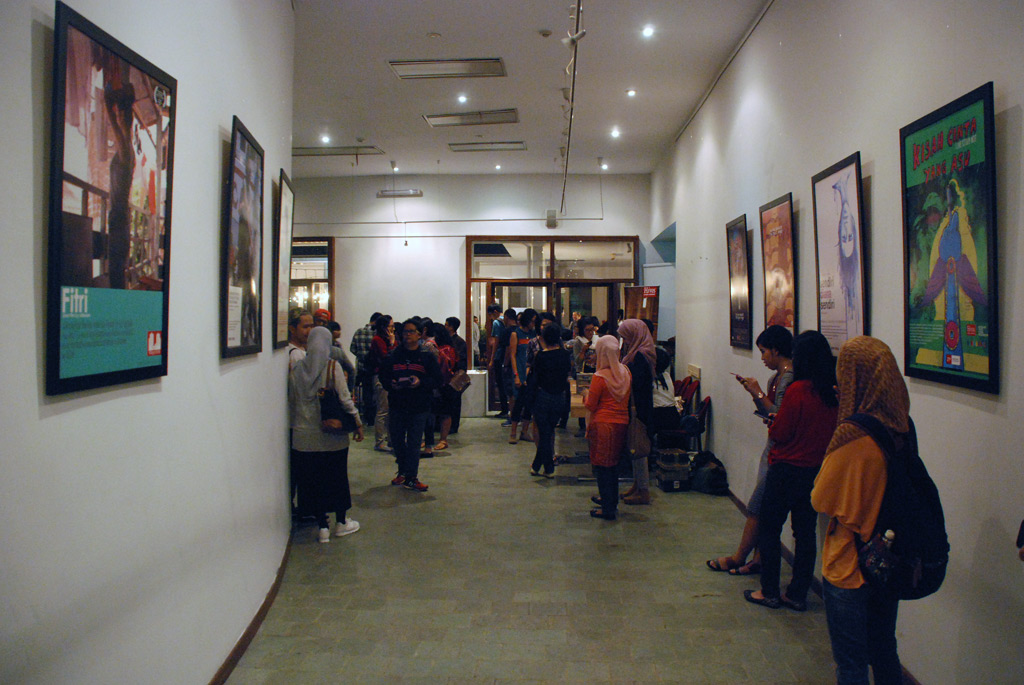
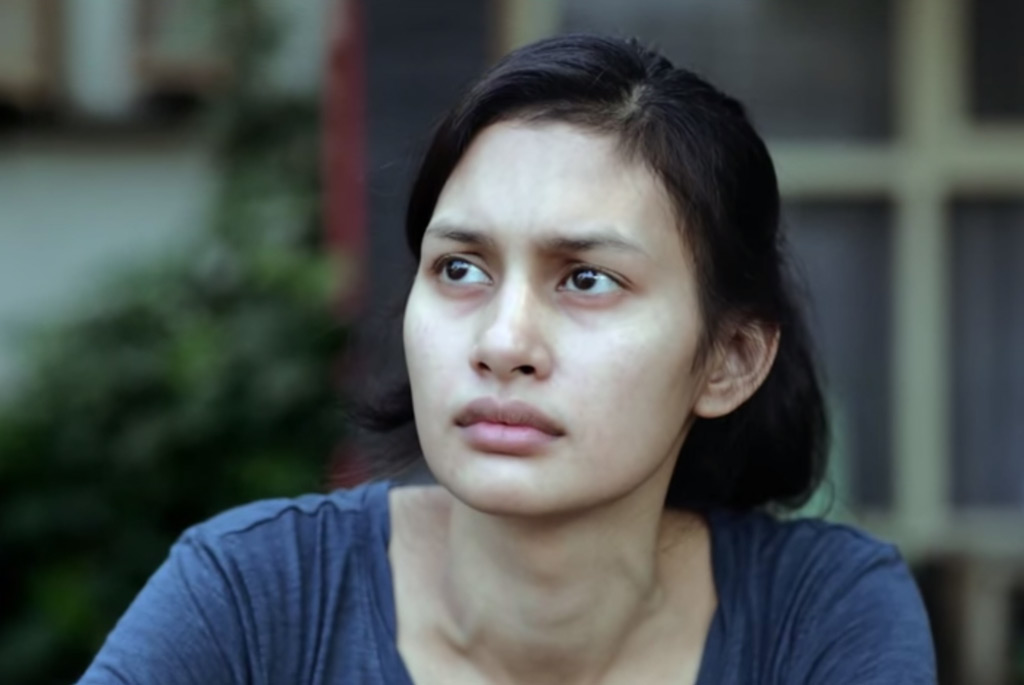
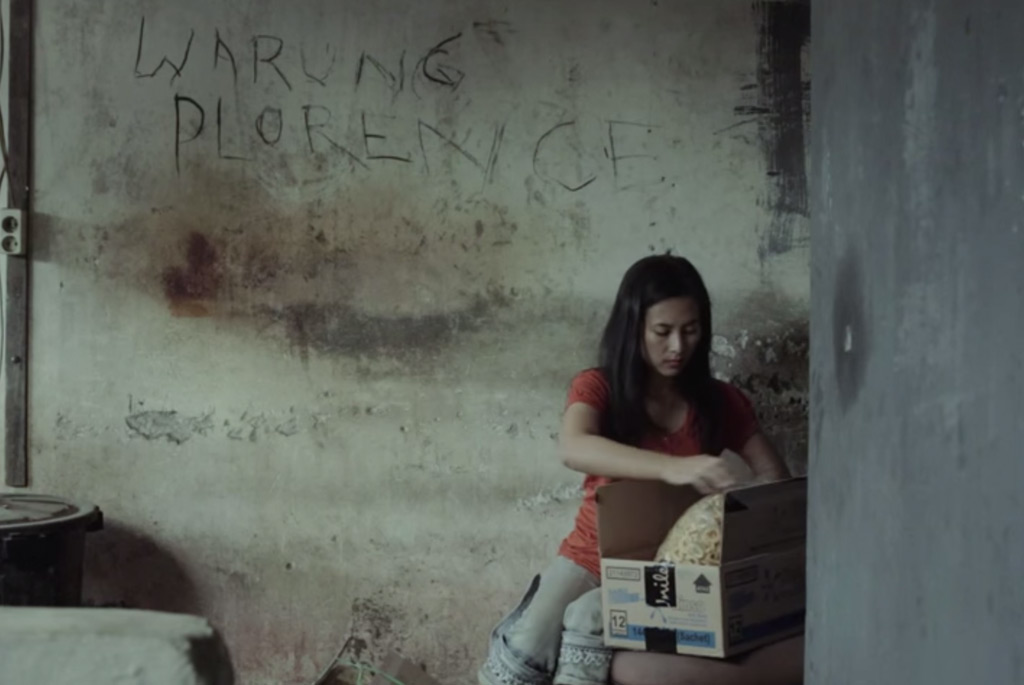
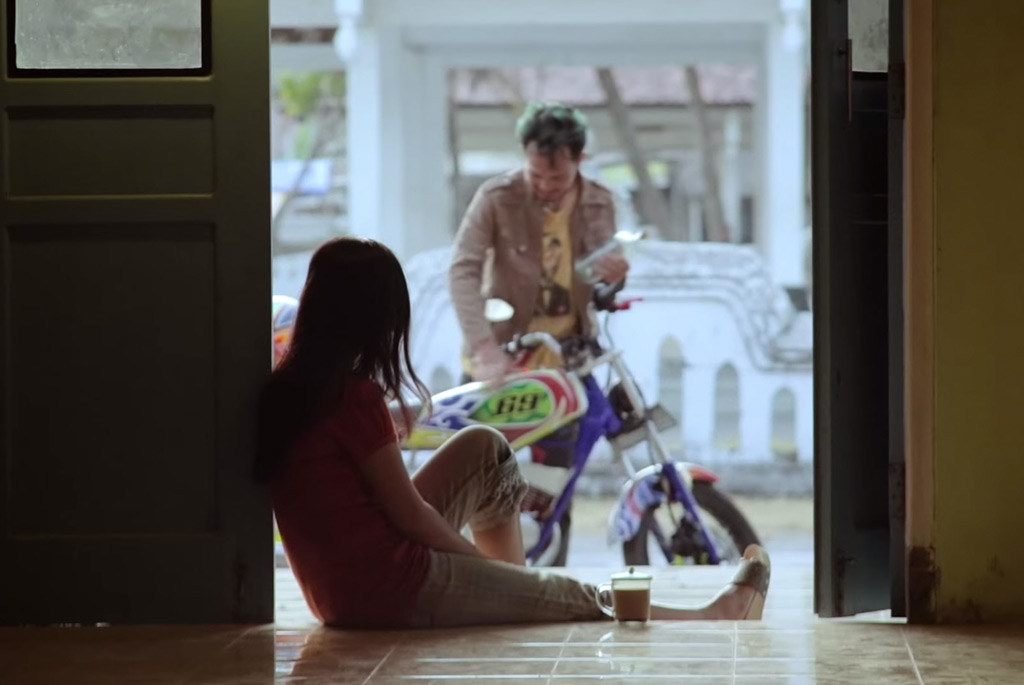
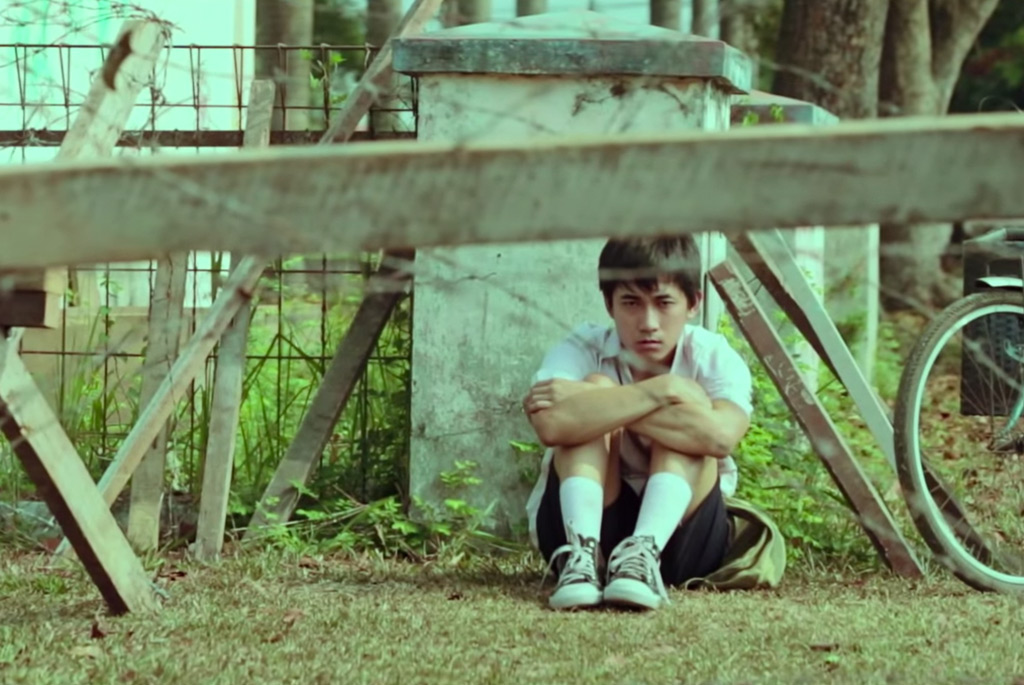

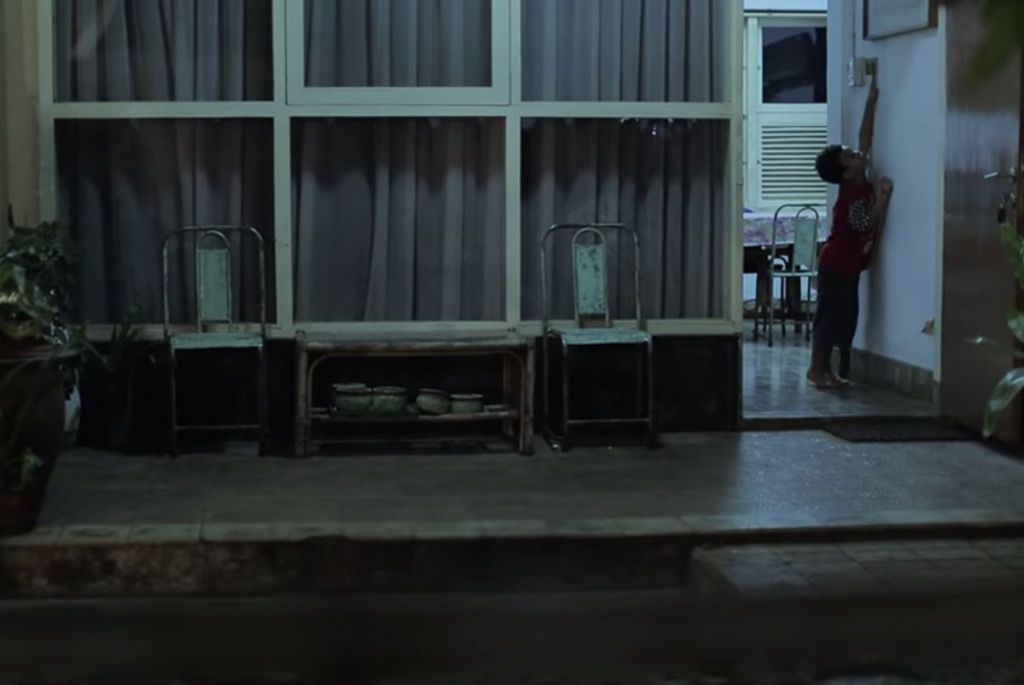

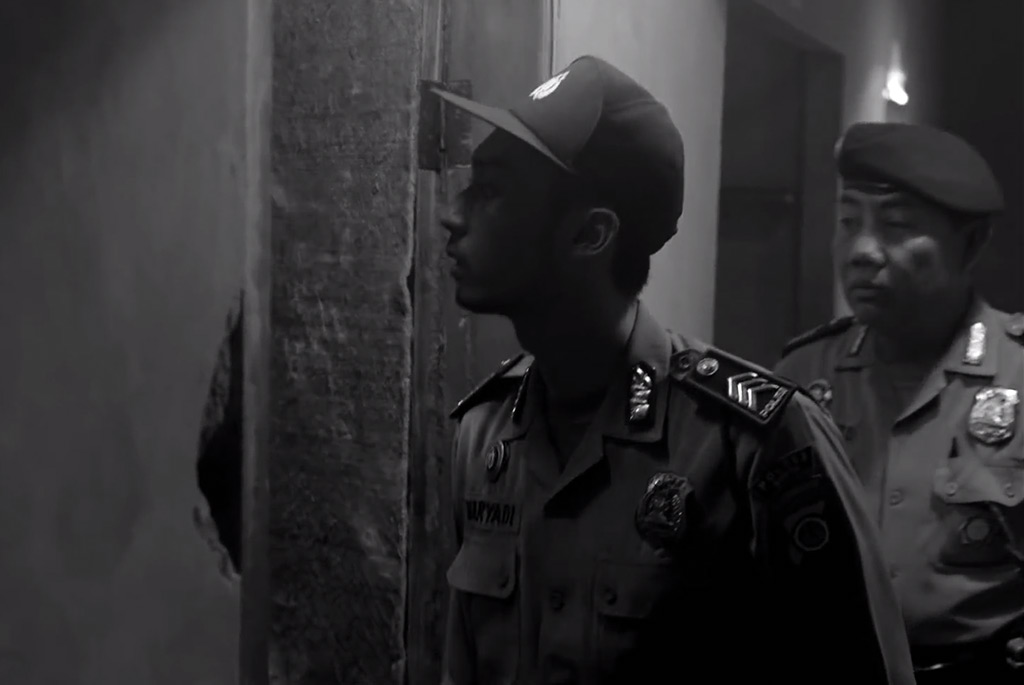



On Saturday, March, 21st 2015, the second Film Musik Makan was held in Goethe Haus Jakarta. Following the success of their first mini-festival in 2014, Babibutafilm along with Hivos Rosea and Yayasan Cipta Citra Indonesia conducted The 2015’ Film Musik Makan to celebrate the national film month. Since the year 2007, March has been proclaimed to be the National Film Month to commemorate the first day of the production of Usmar Ismail’s film, “Darah dan Doa” (Long March of Siliwangi), this film was the first Indonesian film, and later on, Usmar Ismail dubbed to be the father of Indonesian film.
This year, the ceremony was held in a more compact format than the first festival. On 2014, Film Musik Makan lasted for three days, with a more assorted series of events, music, and films – they also held a film workshop by Edwin from Babibuta Film on the last day. Film Musik Makan 2015 only lasted for one day with a less series of events.
Nonetheless, the 2015’s festival successfully delivered a fun and important experience to the audience. All important elements that made Film Musik Makan an essential film festival continue to appear that Saturday. The festival opened with a “Dana Hibah Film dan Distribusi Film” program launch by Buttonijo Films, this program aims to provide a support system for the production and distribution of independent films in the country. Toronto International Film Festival-one of the biggest film festival in Northern America alongside with Chinese Shadows-a film buyer institution also shared their proficiency in this event.
But the main spotlight falls onto the film selection. All of the films debuted on this festival were able to represent the vision of the festival perfectly. The curator of the festival successfully picked the names of the directors that able to respond well to the festival’s challenge, resulting 3 short films and one full length movie that does pretty well to serve one grand theme: the relation between sexuality and power. And still, those movies have their own characteristics that reflect the background and personality of each director.
The first film screened was “The Fox Exploits the Tiger’s Might”. Directed by Lucky Kuswandi the director of Madame X and the award winning Selamat Pagi Malam, “The Fox Exploits the Tiger’s Might” capture a relation between two young boys who are experiencing puberty with all of its element, including the raging sexual desire, in a military-based suburbs. The director rally the idea of sexuality and power in the interaction between the boys framed in medium shots. Though there are some offbeat juxtaposition on the movie, Lucky’s attention to detail and the quite intense scenes makes the movie an intriguing pleasure to watch.
Yosep Anggi Noen’s “Kisah Cinta yang Asu” (Love Story Not) follows with a prudent narrative between a man and two women. Situated somewhere in the coastal area of Central Java, Yosep Anggi Noen also participated in the movie by playing as lead actor. Known for his positive accomplishment in local and international film festivals with films like “Vakansi yang Janggal dan Penyakit Lainnya” (2012), and “Lady Caddy Who Never Saw Hole in One” (2013), Anggi continues to display his bright filmmaking with this movie. “Kisah Cinta yang Asu” grab the tension between male-female relations that transpires in the life of a prostitute. The push-pull of power between the characters happens in a back and forth perspectives serve the audience a bold yet vague idea of sovereignty and morality. Surprisingly, Anggi Noen comes forth as an organic actor, alongside with the other actors and actresses who also plays their character naturally.
The third film was “Sendiri, Diana Sendiri” (Following Diana) by Kamila Andini. The film portrays a struggle of a mother coping with polygamy. Though there’s nothing new to the story, Andini was able to exploit the audience’s emotions with long shots and slow pace. Based on a true story, “Sendiri, Diana Sendiri” often grazed into melodrama with its lethargic script but survived with the charm of the mother-son relation. The mother, portrayed admirably by the seasoned actress Raihaanun, shows a hearty chemistry with the son from the first scene through the end.
The only full-length movie, “Siti” was last on the rundown. Shot in black and white, this movie successfully stole the limelight with its blatant glimpse of a woman’s grapple to attune the ancient role of her gender: as a mother and a wage earner. Planted in the Parangtritis, a popular tourist beach and village area on the southern coast of Java within the province of the Yogyakarta, the director, Eddie Cahyono genuinely pinpoints the story with a set of nimble cast. While there are some disproportionate players, like the first and the second policemen who do not resemble the description of the typical Indonesian police figure, the other cast played their part impeccably, especially, Sekar Sari who played as Siti. Filmed in academy ratio, we can see Eddie’s theatrical background was apparent in how he brilliantly knitted the storyline between details like “peyek jingking” and Bagas, Siti’s son’s sincere dialogue, making the movie even more enduring. And the haunting ending scene with its soundtrack is a noteworthy moment of this exceptional movie.
In the Q & A session, it is revealed that the main idea of this festival is to facilitate bright young directors to express their ideas in their own way-something that is quite rare to found this day. The producers from Babibuta Film and Hivos gave total freedom to the directors on the way they treat the movie, “We wish that there were more producers like them” Anggi said. Anggi also mentions quite an interesting theory about the role of arthouse films in the public. Instead of dictating to the public the meaning and the message of the movie, he prefers to think of his movie as a media to invite the public to think and question their selves about the issues addressed in the movie. “If you’re looking for an easy one, just go to the other theater. Good movies are like good food, it’s not an instant product. Like how instant noodles taste good, easily made and digested, but you should be aware that that instant noodle causes cancer” Anggi adds. An interesting theory to sums up an important film festival that favorably made the audience crave more Indonesian arthouse movies.











